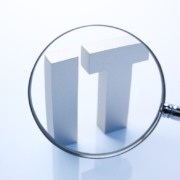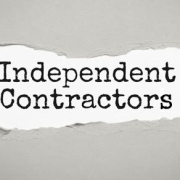IS YOUR SCHEDULE C IN THE AUDIT BULL’S-EYE?
In a recent study, the IRS determined that over half of all underreporting is attributable to Schedule C, the form used by self-employed individuals to report their profits or losses for the year. It is no wonder that the audit rate for Schedule C returns has increased substantially and is among the highest of all rates. Based on 2010 IRS figures, Schedule Cs have a 300% higher chance of being audited than either a partnership or an S-Corporation. Of the Schedule Cs audited in 2010, the average adjustment exceeded $9,000.
Among the areas of underreporting are:
- Personal Expenses – Over-deductions attributable to the inclusion of non-deductible personal expenses and the failure to allocate for personal use of a vehicle.
- Underreporting Income – Failure to include all income. To counter this problem, the IRS has initiated merchant card and third-party reporting that will provide the IRS with all income from credit card sales.
- Worker Misclassification – Misclassifying workers as independent contractors instead of treating them as W-2 employees, thereby avoiding the employer’s share of payroll, unemployment, and other taxes. The IRS currently has a Voluntary Classification Settlement Program in effect that allows eligible taxpayers to voluntarily reclassify their workers for federal employment tax purposes. Voluntary programs usually precede more aggressive compliance measures.
- Failing to Issue Information Returns – Generally, businesses are required to issue 1099s for fees they pay to individuals other than employees or to corporations. This is a huge area of non-compliance that denies the IRS the ability to ensure that payees are properly reporting their income. In an audit in which a 1099 should have been issued and was not, the IRS will generally disallow the deduction for those services. The 2011 Schedule C asks two catch-22 questions: “Did you make payments that would require you to file a Form 1099?” and “If yes, did you or will you file all required Forms 1099?”
- Hobby Losses – Some businesses are actually hobbies, where there is no real intention of ever making a profit. Businesses deemed to be hobbies have special rules that limit the expense deductions to the income and require the deductions to be taken as itemized deductions on Schedule A. Watch for a future article on hobby losses that will appear in the March newsletter.
If you have questions related to your Schedule C or any of the issues in this article, please give this office a call.








Leave a Reply
Want to join the discussion?Feel free to contribute!